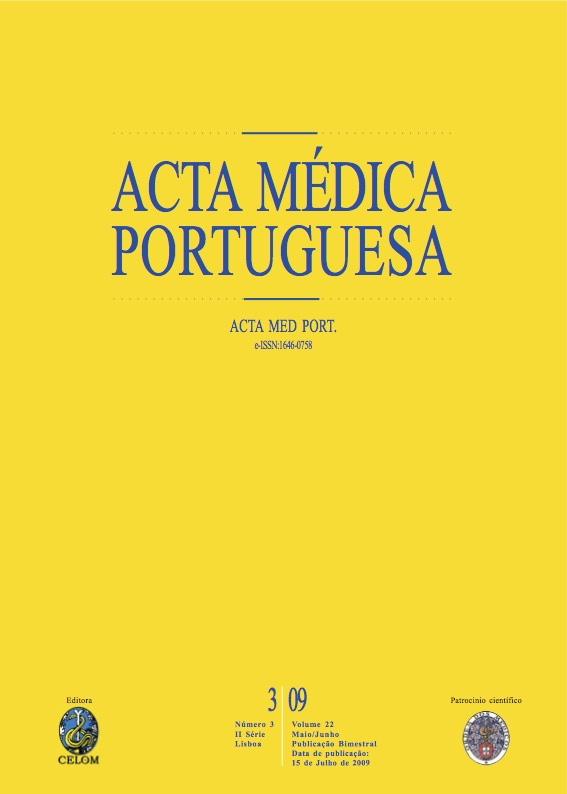Incapacidade auditiva autodeclarada na população Portuguesa: uma análise aos dados do quarto Inquérito Nacional de Saúde.
DOI:
https://doi.org/10.20344/amp.1702Resumo
Hearing loss is associated with a negative social impact, which implies a lower quality of life. Despite its negative consequences the prevalence of hearing loss in the Portuguese population is not well known.The aim of this study was to assess the prevalence of self-reported hearing loss, in a representative sample of the Portuguese population.We analysed data from the 4th Portuguese National Health Survey (2005-2006), conducted by the National Institute of Health, Dr. Ricardo Jorge and the National Institute of Statistics. Participants were selected from households in the seven regions of Portugal (NUTS II classification), using a multi-stage random probability design. Trained interviewers conducted face-to-face interviews in each household and obtained information on social and demographic characteristics, and hearing loss situation. The prevalence of self-reported hearing loss was estimated by sex, age group, región and level of education.The prevalence of self-reported hearing loss was higher in men, and increased with age, in both sexes. The crude prevalence of hearing loss was higher in Alentejo region (11,0% in men and 9,5% in women) than in any other Region. After age-adjustment, the Northern región had the highest percentage (11,6%), and the Alentejo region the second value (9,7%). The Madeira Region had the lowest age-adjusted prevalence (5,0%). The percentage of hearing loss decreased with higher education, for most age groups both in men and women.This study showed that hearing loss was associated with high age groups, male gender and lower level of education. Facing this situation, it is important to promote epidemiological and clinical investigation about hearing loss, including associated exposures and their distribution in Portuguese populations.Downloads
Downloads
Como Citar
Edição
Secção
Licença
Todos os artigos publicados na AMP são de acesso aberto e cumprem os requisitos das agências de financiamento ou instituições académicas. Relativamente à utilização por terceiros a AMP rege-se pelos termos da licença Creative Commons ‘Atribuição – Uso Não-Comercial – (CC-BY-NC)’.
É da responsabilidade do autor obter permissão para reproduzir figuras, tabelas, etc., de outras publicações. Após a aceitação de um artigo, os autores serão convidados a preencher uma “Declaração de Responsabilidade Autoral e Partilha de Direitos de Autor “(http://www.actamedicaportuguesa.com/info/AMP-NormasPublicacao.pdf) e a “Declaração de Potenciais Conflitos de Interesse” (http://www.icmje.org/conflicts-of-interest) do ICMJE. Será enviado um e-mail ao autor correspondente, confirmando a receção do manuscrito.
Após a publicação, os autores ficam autorizados a disponibilizar os seus artigos em repositórios das suas instituições de origem, desde que mencionem sempre onde foram publicados e de acordo com a licença Creative Commons









